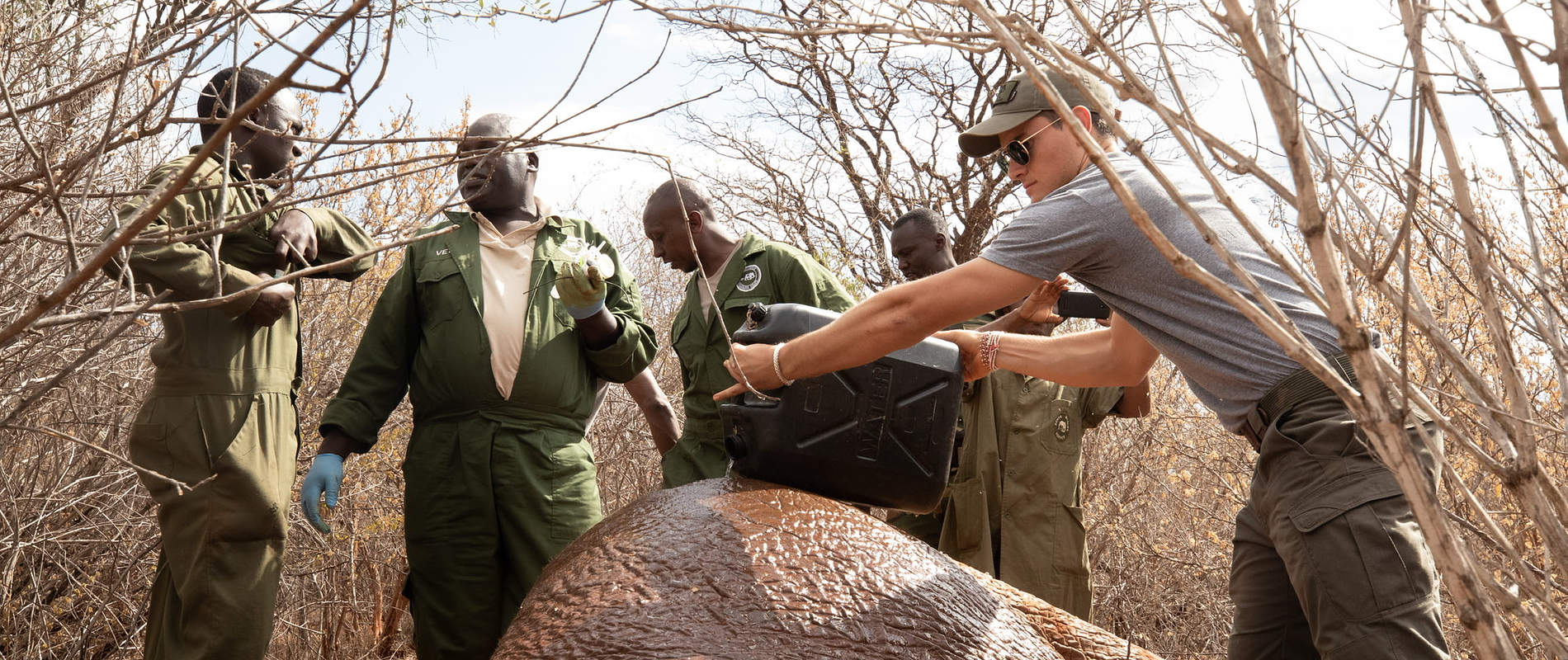Litter has a catastrophic effect on wildlife. Discarded without care, even the most mundane object can become lethal. All of us have seen haunting photos to this effect: birds caught in six-pack rings, sea creatures who have ingested plastic bags, hoofed and horned animals entangled in ropes. Earlier this week, we were reminded that no one is immune to litter — not even the world’s largest animal, the elephant.

On 28th June 2022, KWS reported an injured bull elephant in Tsavo West National Park. At first light the following morning, our fixed-wing pilot embarked on a patrol to find him. Scanning the plains below, he spotted an elephant with a notable limp. We had found our patient.

With the elephant’s coordinates confirmed, our Kaluku Operations Room mobilised a treatment. While our SWT/KWS Tsavo Mobile Vet Unit drove directly to Tsavo West, our helicopter flew to the scene so the patient could be darted from the air.

Of course, every treatment comes with a plot twist. As Dr Limo prepared the anaesthetic dart, the patient suddenly pulled a disappearing act! Moments like these remind us how vital it is to have aerial capabilities. Our helicopter took flight, and after an hour’s search, our pilot spotted the wayward elephant. There was a silver lining to his wandering, in that he had travelled closer to the park road. When the bull succumbed to the anaesthetic, this made it easy for the team to reach him.

They were confronted with a sobering sight: The elephant had become entangled in an old fence wire. Carelessly discarded, a single strand had turned into a treacherous trap. It had wrapped around the elephant’s rear left leg several times, causing a wound that rivalled those caused by poachers’ snares.

Fortunately, help arrived in time. After washing the wound with peroxide and iodine, the team packed it with green clay, gave it a hearty spray of antiseptic, and administered long-acting antibiotics. Minus one life-threatening strand of wire, the bull walked away with a positive prognosis.

As this incident reminds us, every discarded object has the potential to harm our wild world. It is incredibly important that humans take responsibility for their refuse and leave nothing behind. All creatures, from the smallest bird to the biggest bull elephant, are relying on us.
